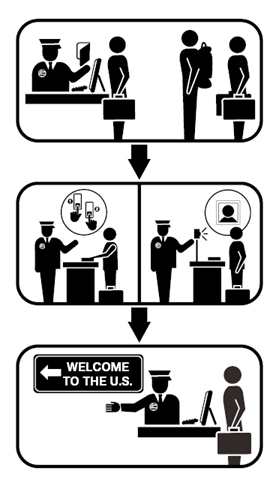The 21st century will be the century of the fugitive. Not because fugitives are proliferating, but because they are disappearing. And not disappearing in the way that fugitives like to disappear, but disappearing because they simply won’t exist. Technology won’t allow it. In the near future fugitives will occupy the same place in our collective consciousness as cowboys or pirates. And just as the Western film genre dominated the mid-20th century — while agribusiness was at the same time industrializing the west, making the cowboy superfluous–our new century will be dominated by cultural forms which star fugitives.
There is something about fugitives we psychologically crave, and if they can’t exist, then we will invent them on our own.
I’ve been thinking about fugitivity lately because I’ve been closely following the case of Eric Rudolph, the alleged Olympic bomber who disappeared into the mountains of western North Carolina in February 1998. Rudolph became the target of the largest manhunt in FBI history, and it seemed as if he had vanished in a poof of smoke until May 31, 2003, when he finally surrendered himself after years of hiding.
 Rudolph, seen here in a composite FBI sketch, reportedly told a man in July 1998 — when Rudolph emerged briefly for a day before disappearing again for another five years — that “Where I’m hidden, they’ll never find me.”
Rudolph, seen here in a composite FBI sketch, reportedly told a man in July 1998 — when Rudolph emerged briefly for a day before disappearing again for another five years — that “Where I’m hidden, they’ll never find me.”
And it was true. Rudolph gave himself up freely, arrested near a dumpster behind a Save-A-Lot supermarket, in Murphy, North Carolina. By most accounts, Rudolph was simply weary of hiding where he couldn’t be found.
Now, in this Patriot Act-world of digital, synchronized communication we have what amounts to infinite tracking, deep searching, and persistent indexing. I don’t agree with Rudolph’s political beliefs and I abhor his alleged methods. But there is something achingly diminishing about a captured fugitive. It’s as if the world suddenly got smaller. Now even Rudolph is now subject to the same rules as the rest of us. The U.S. District Court for the Northern District of Alabama has even set up a listserv for U.S. v. Eric Robert Rudolph (Criminal No. 00-422-A) that allows you to receive an email message “whenever a document (motion, order, etc.) is filed in each case.”
And so, fugitivity gives way to documentation. It’s a trend you’ll be seeing — and experiencing — more and more…
 Illustration from the Department of Homeland Security’s US-VISIT Brochure.
Illustration from the Department of Homeland Security’s US-VISIT Brochure.